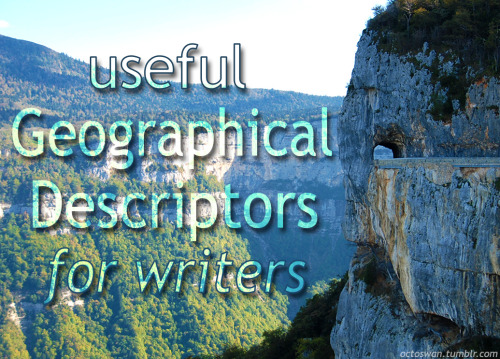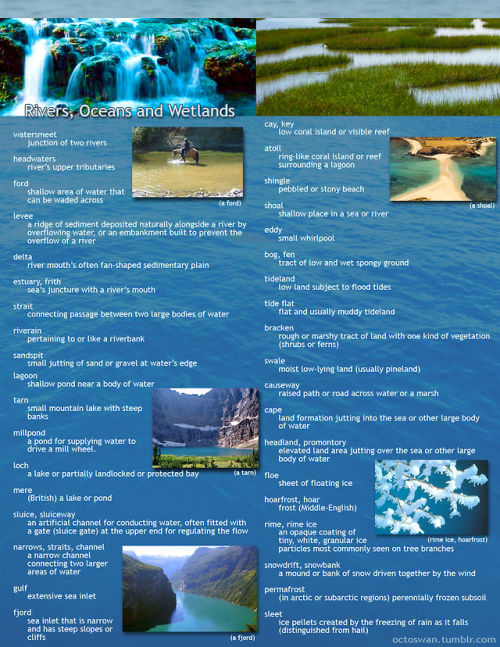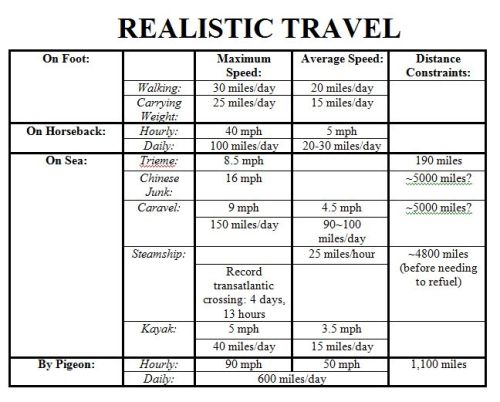If You’re A Writer, Stop Scrolling, And Read This!!
If you’re a writer, stop scrolling, and read this!!
I refuse to let anyone give up writing because they get discouraged. Be it because their story doesn't get enough notes, or because they think they're no good. Because that's completely up to perception. I look at my writing and think, "that's not too great." Especially when I compare it to certain others’, honestly. But that just tells me that I need to strive to be better. I need to strive to improve my writing style.
For those of you reading this that are thinking about quitting writing:
Don't!! Trust me, shit happens. I cannot tell you how many times I've lost things I was writing because of bullshit. Be it computer crashes, hardware glitches that destroyed all my files, or the entire fucking document becoming corrupt for no damn reason.
Honestly?I've probably lost years of work in total due to bullshit. And yeah, it was discouraging! Sometimes, it made me take entire breaks from writing, ultimately leading to me losing interest in the project because I lost interest in the fandom. But in the end, I always came back to writing. And you know what I find? What I write the second time is sometimes better that the first.
Once I rewrote something entirely because the file got corrupted. Well, I managed to restore the data, and reread it. I'll admit that there were some aspects that I forgot to put back in, but ultimately, I decided that the second writing was written better, had better word choice, and better story flow.
The worst thing you can ever do to yourself is write for numbers of notes.
You should write for your audience, yes, but you shouldn’t write something because people like it. Write because it’s fun! Write in order to improve! Writing is one of those things that always, always, always improves the more you do it, even if you're just rewriting the same thing.
But if you’re writing something that is uninspiring to you, it’s bound to come out lackluster to you, the creator, even if it doesn’t come off that way to your audience.
And if something doesn’t get too many notes, don’t get discouraged! Keep on writing! Write because it’s fun, not because it’s expected. Unless of course you have a school project, but I’m talking about fictional writing here.
Don’t let unfortunate circumstances or a measly four notes on your chapter discourage you from writing what you want. Because you will always improve your works! Make yourself better! Make that image in your brain better. Sometimes an artist must step away from the canvas to find more colors for their painting.
More Posts from Writersreferencez and Others
sometimes you need dialogue tags and don't want to use the same four







I made these as a way to compile all the geographical vocabulary that I thought was useful and interesting for writers. Some descriptors share categories, and some are simplified, but for the most part everything is in its proper place. Not all the words are as useable as others, and some might take tricky wording to pull off, but I hope these prove useful to all you writers out there!
(save the images to zoom in on the pics)

Here’s an invaluable writing resource for you.
helpful grammar tip! farther is for physical distance, further is for metaphorical distance, and father is for emotional distance!
There’s a fic on fanfiction(.)net that I’ve kept tabs on for years to see if it’s been updated or not. While I’m no longer even in the fandom it’s written for, it just has one of the greatest storylines I’ve ever read. Last time it was updated was 2011.
The other day, I decided to reread the entire thing and leave a very in-depth review of what I thought of each chapter. I also mentioned how I started reading it when I was 13 and am now 21, but always came back to see if it was ever finished because I loved it so dearly.
Today, said author sent me a private message saying that her analytics showed that the story was still getting views even after all these years, but no one ever bothered to leave reviews other than “update soon!!!”, so she never felt motivated enough to finish it. She said that me reviewing every single chapter with lengthy paragraphs made her cry and meant the world to her. She also mentioned that she felt encouraged to write the two remaining chapters needed to complete the story and that she would send me a message the night before she updates the fic.
I’m literally sobbing. I’m so excited :’)
Please always remember to leave a review when reading fanfiction!!! It means a lot to a writer.
How to Use an Ellipsis Properly in Fiction
Ever wonder why some ellipses seem to have three dots and others have four? Some have spaces between each dot and some don’t? Why sometimes you capitalize after an ellipsis and other times you lowercase?
To be honest, I don’t think most of us were taught properly how to use an ellipsis. I know I wasn’t. I see a lot of writers who don’t understand all the rules of ellipses either.

Some of you may be wondering what an “ellipsis” is. It’s a fancy name for the three dots or “periods” you see in writing ( … ). The word “ellipsis” is Greek for “omission,” which is what it does. It shows that something has been omitted or left out.
Now with research papers, this might be obvious. Maybe you are quoting a source and don’t want to quote every single word of it, so you use an ellipsis to show that you left some stuff out. Like this:
Full quote:
“You know you’re in love when you can’t fall asleep because reality is finally better than your dreams.” - Dr. Suess
Quote with omission:
“You know you’re in love when … reality is finally better than your dreams.” - Dr. Suess
In fiction, we usually aren’t quoting sources. But the ellipsis works in similar ways, it conveys that something is omitted. This might be something directly omitted. Mamma Mia uses this method well:
July seventeenth, what a night. Sam rowed me over to the little island. We danced on the beach, and we kissed on the beach, and …
The ellipsis is used to imply they got intimate, but that part is “omitted.”
Other times things are omitted because they are incomplete–maybe an incomplete line of dialogue such as when a character trails off.
“I started to go to the school, but …” she trailed off.
Or an incomplete thought.
Would she actually want … ? she wondered.
Or maybe something is “omitted” for the sake of something else, like a character trying to censor or tone down his word choice.
“Sarah is really very … fanciful, isn’t she?” David said.
In pauses like this, the ellipsis may convey thinking. It’s completely fine to use them that way.
In rare occasions, an ellipsis might be used to indirectly convey the passing of time.
She ate … she drank … and she went shopping.
And you may occasionally see them used other ways stylistically, but these are the main situations.
In a sense, though, in all these examples, something is omitted, whether it’s directly, or indirectly, like an incomplete or changing thought, or actions in between.
When used smartly, ellipses can be powerful in fiction because they convey more than what is on the page, and that is vital to good storytelling.
Too often, however, newer writers just throw them in because they like the feel and sound of them or the long pause, or even in some cases … because they are lazy. Make sure if you use them, they have a point.
Now let’s get to the technicalities. Years ago, I used to be confused that sometimes ellipses seemed to be three dots and other times four, and I didn’t know when to use which. Ellipses are three dots. However, if it comes after a complete sentence, you still use a period.
I was so hungry… . chicken, cereal, tofu, pasta–all of it sounded good.
If it follows an incomplete sentence, you don’t use a period.
“You know you’re in love when … reality is finally better than your dreams.” - Dr. Suess
If the words after the ellipsis are the start of a new sentence, you capitalize them.
"They treated me like … Want to go to dinner?“ she asked suddenly.
If not, you don’t.
When it comes to spacing before and after an ellipsis, handle it how you would a regular word.
Sarah was really very[space]…[space]fanciful.
“I started to go to the school, but[space] …[no space]” she trailed off.
One exception to this is if there is a question mark following.
Would she actually want[space]…[space]? she wondered.
According to The Chicago Manual of Style, ellipses should have a space between each dot.
Would she actually want[space].[space].[space].[space]? she wondered.
However, in APA style, there are no spaces between dots.
Would she actually want … ? she wondered.
Fiction typically follows The Chicago Manual of Style, but you may still see the ellipsis with no spaces, especially since word processors sometimes reformat ellipses automatically. So while technically they should have spaces between each dot, you probably aren’t going to get reprimanded if you don’t. Even The Chicago Manual of Style notes that some places will be fine with the no-space ellipsis. I use spaces because that’s how I was corrected by a mentor once.
One more thing: Ellipses do not signify an interruption.
WRONG:
“I wish …”
“Shut up!” Mike interrupted.
Use em dashes for that.
Correct:
“I wish–”
“Shut up!” Mike interrupted.
Dashes are another subject.
But hopefully now you know how to handle ellipses!
Resources For Describing Emotion

Emotions
Without Making Your Character Feel Too Self Aware
Showing Emotion Without Telling About It
Emotions Associated With Body Language
Telling Readers What The Character Doesn’t Want To Show
Hiding Emotions
Expressing Cardinal Emotions: Masculine vs. Feminine
Writing Extreme Emotion Without Melodrama
Specific Emotions
Conveying Shock
Conveying Embarrassment
Conveying Disappointment
Conveying Love/Attraction
Conveying Annoyance
Conveying Relief
Conveying Uncertainty
Conveying Impatience
Conveying Shame
Conveying Resentment
Conveying Panic
Conveying Guilt
Conveying Desperation
Conveying Sarcasm & Verbal Disrespect
Conveying Confusion
Conveying Stubbornness
Conveying Frustration
Conveying Indifference
Conveying Indignation
Conveying Confidence & Pride
Conveying Smugness
Conveying Enthusiasm
Conveying Curiosity
Conveying Hopefulness
Conveying Unease
Conveying Reluctance
Conveying Worry
Conveying Humility & Meekness
Conveying Happiness & Joy
Conveying Amusement
Conveying Disgust
Conveying Resignation
Conveying Jealousy
Conveying Anticipation
Conveying Contentment
Conveying Defeat
Conveying Excitement
Conveying Fear
Conveying Hatred
Conveying Hurt
Conveying Being Overwhelmed
Conveying Sadness & Grief
Conveying Satisfaction
Conveying Somberness
Conveying Sympathy & Empathy
Conveying Wariness
Conveying Defensiveness
Conveying Desire
Conveying Doubt
Conveying Energy
Conveying Exhaustion
Conveying Hunger
Conveying Loneliness
Conveying Physical Pain
Emotional Wounds
A Role Model Who Disappoints
A Sibling’s Betrayal
A Speech Impediment
Becoming a Caregiver at an Early Age
Being Bullied
Being Fired or Laid Off
Being Held Captive
Being Mugged
Being Publicly Humiliated
Being Raised by Neglectful Parents
Being Raised by Overprotective Parents
Being So Beautiful It’s All People See
Being the Victim of a Vicious Rumor
Being Stalked
Being Trapped in a Collapsed Building
Being Unfairly Blamed For The Death of Another
Childhood Sexual Abuse (by a family member or known person)
Discovering One’s Parent is a Monster
Discovering One’s Sibling was Abused
Experiencing a Miscarriage or Stillbirth
Failing At School
Failing To Do The Right Thing
Financial Ruin Due To A Spouse’s Irresponsibility
Finding Out One’s Child Was Abused
Finding Out One Was Adopted
Getting Lost In a Natural Environment
Growing Up In A Cult
Growing Up in a Dangerous Neighborhood
Growing Up In Foster Care
Growing Up In The Public Eye
Growing Up In The Shadow of a Successful Sibling
Growing Up with a Sibling Who Has a Chronic Disability or Illness
Having Parents Who Favored One Child Over Another
Having To Kill Another Person To Survive
Infertility
Infidelity (emotional or physical)
Losing a Limb
Losing a Loved One To A Random Act of Violence
Making a Very Public Mistake
Overly Critical or Strict Parents
Physical Disfigurement
Rejection By One’s Peers
Telling The Truth But Not Being Believed
The Death of a Child On One’s Watch
Victimization via Identity Theft
Watching A Loved One Die
Wrongful Imprisonment
Spending Time In Jail
Suffering From a Learning Disability
Motivation
Achieving Spiritual Enlightenment
Avoiding Certain Death
Avoiding Financial Ruin
Beating a Diagnosis or Condition
Being Acknowledged and Appreciated by Family
Being a Leader of Others
Being the Best At Something
Caring for an Aging Parent
Carrying on a Legacy
Catching The Bad Guy or Girl
Coming To Grips With Mental Illness
Discovering One’s True Self
Escaping a Dangerous Life one Doesn’t Want
Escaping a Killer
Escaping a Widespread Disaster
Escaping Confinement
Escaping Homelessness
Escaping Invaders
Finding Friendship or Companionship
Finding a Lifelong Partner
Having a Child
Helping a Loved One See They Are Hurting Themselves and Others
Obtaining Shelter From The Elements
Overcoming Abuse and Learning To Trust
Overcoming Addiction
Protecting One’s Home or Property
Pursuing Justice For Oneself or Others
Realizing a Dream
Reconciling with an Estranged Family Member
Rescuing a Loved One From a Captor
Restoring A Name or Reputation
Righting a Deep Wrong
Seeking Out One’s Biological Roots
Stopping an Event From Happening
Trying Again When One Has Previously Failed
Support Wordsnstuff!
Request A Writing Help Post/Themed Playlist/Writing Tips!
Send Me Poetry To Feature On Our Instagram!
Receive Updates & Participate In Polls On Our Twitter!
Like us and share on Facebook!
Read More On Our Masterlist & See our Frequently Asked Questions!
Tag What You Want Me To See With #wordsnstuff!
Participate in monthly writing challenges!
Writing Description Notes:
Updated 9th September 2024 More writing tips, review tips & writing description notes
Facial Expressions
Masking Emotions
Smiles/Smirks/Grins
Eye Contact/Eye Movements
Blushing
Voice/Tone
Body Language/Idle Movement
Thoughts/Thinking/Focusing/Distracted
Silence
Memories
Happy/Content/Comforted
Love/Romance
Sadness/Crying/Hurt
Confidence/Determination/Hopeful
Surprised/Shocked
Guilt/Regret
Disgusted/Jealous
Uncertain/Doubtful/Worried
Anger/Rage
Laughter
Confused
Speechless/Tongue Tied
Fear/Terrified
Mental Pain
Physical Pain
Tired/Drowsy/Exhausted
Eating
Drinking
Warm/Hot
Advanced Synonyms for Your Novel
Cold - frigid, icy, chilling
Hot - sweltering, scorching, torrid
Small - minute, diminutive, petite
Big - vast, colossal, gargantuan
Smart - intelligent, astute, savvy
Dumb - obtuse, vacuous, dim-witted
Fast - swift, rapid, fleet
Slow - sluggish, lethargic, dilatory
Old - ancient, decrepit, venerable
Young - youthful, juvenile, fledgling
Good - excellent, superb, stellar
Bad - dreadful, atrocious, abysmal
Strong - robust, sturdy, formidable
Weak - feeble, frail, flimsy
Funny - humorous, witty, comical

Here’s an invaluable writing resource for you.
-
 karla-violett-blog liked this · 6 years ago
karla-violett-blog liked this · 6 years ago -
 princess-josie-riki-blogs liked this · 6 years ago
princess-josie-riki-blogs liked this · 6 years ago -
 swpeternguyen liked this · 6 years ago
swpeternguyen liked this · 6 years ago -
 arandomfanofstuff liked this · 6 years ago
arandomfanofstuff liked this · 6 years ago -
 hxllo-nurse-archived reblogged this · 6 years ago
hxllo-nurse-archived reblogged this · 6 years ago -
 hxllo-nurse-archived liked this · 6 years ago
hxllo-nurse-archived liked this · 6 years ago -
 sunflowersean reblogged this · 6 years ago
sunflowersean reblogged this · 6 years ago -
 dornada reblogged this · 6 years ago
dornada reblogged this · 6 years ago -
 dornada liked this · 6 years ago
dornada liked this · 6 years ago -
 double-z-the-queen reblogged this · 6 years ago
double-z-the-queen reblogged this · 6 years ago -
 writersreferencez reblogged this · 6 years ago
writersreferencez reblogged this · 6 years ago